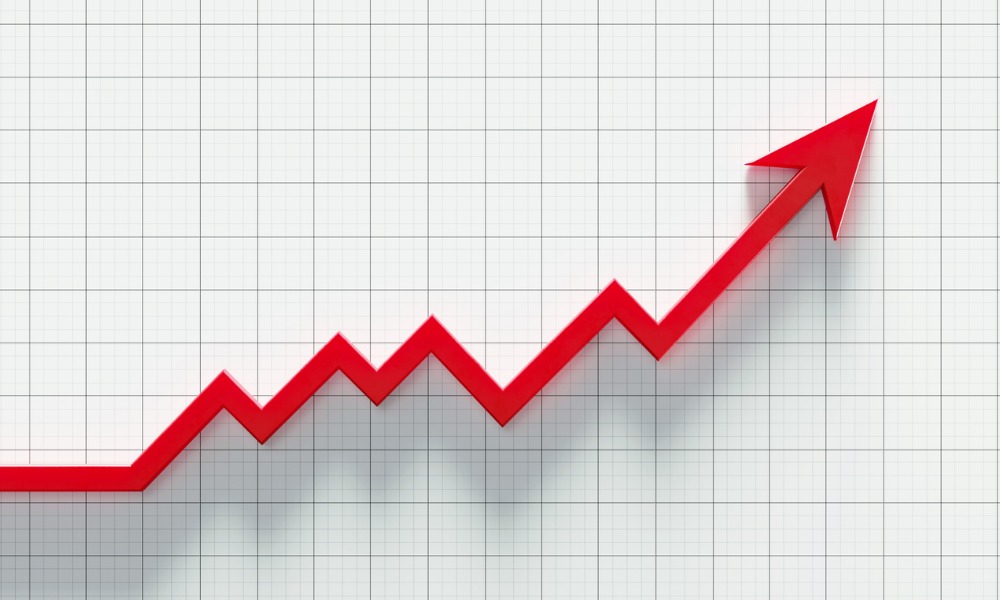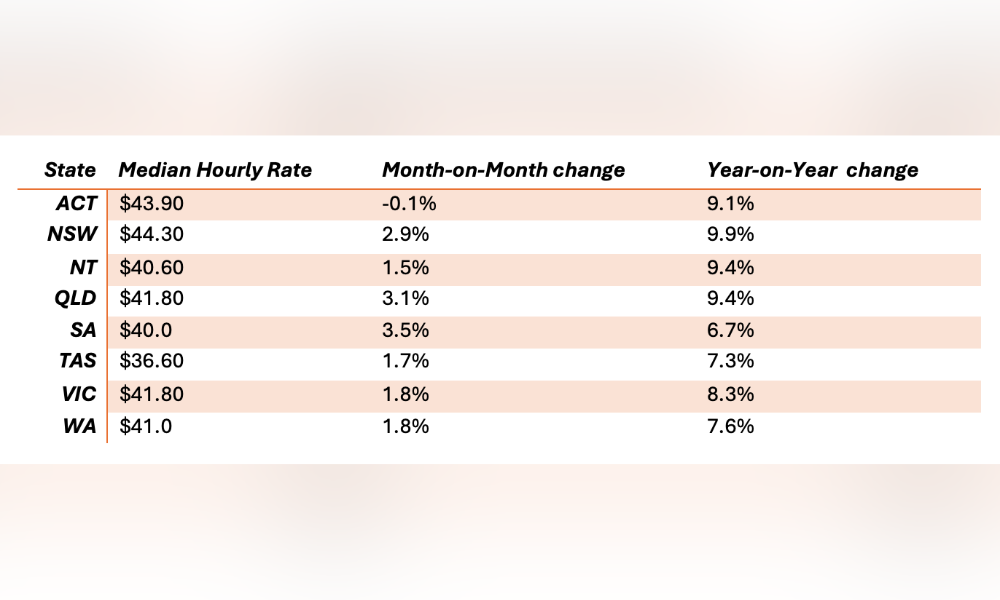
'Impacts of potentially unsustainable wage growth must be weighed against ASIC's findings that business failure rates are nearing recession levels'

The overall year-on-year wage growth in Australia reached a 12-month high of 8.8%, according to the inaugural a report from Employment Hero.
That’s more than double the 4.1% annual wage growth recorded by the Australian Bureau of Statistics (ABS) in the June quarter.
According to Employment Hero, the analysis looked into the full compensation package, including base pay, bonuses, commissions, and other forms of remuneration.
The report, which will be issued monthly, also draws directly from the 300,000 business and more than two million employees on the Employment Hero platform globally and is informed by real-time payroll data.
This is unlike the ABS' Wage Price Index, which is issued quarterly and is focused on the base pay from a sample of 18,000 jobs drawn from 3,000 private and public sector businesses.
According to the SmartMatch Employment Report, full-time employees saw a year-on-year wage growth of 9.6%. Part-time workers experienced a six per cent increase, while casuals saw 5.9%.
By industry, the Construction and Trade services reported the highest year-on-year wage growth at 18%, followed by Consulting and Strategy (14%), and Real Estate and Property (13.2%).
The lowest wage growth, on the other hand, were reported in industries such as Sport and Recreation (1.7%) Science and Technology (2.8%), and Design and Architecture (3.7%).
By location, New South Wales saw the highest year-on-year wage growth with 9.9%, followed by the Australian Capital Territory with 9.1%.

Source: SmartMatch Employment Report
Ben Thompson, CEO of Employment Hero, described the current situation as an "ongoing wageflation" that must be weighed against findings of business failure rates from Australian Securities and Investment Commission (ASIC).
ASIC insolvency data in April revealed that 7,742 companies entered external administration from between July 2023 and March 2024.
This is a 36.2% increase from the previous nine-month period that ended in March 2023, according to ASIC.
"The impacts of potentially unsustainable wage growth must also be weighed against ASIC's findings that business failure rates are nearing recession levels," Thompson said.
"In terms of this month's wage jump, we suspect it could reflect the increase in minimum wages and awards that came into effect on July 1st."